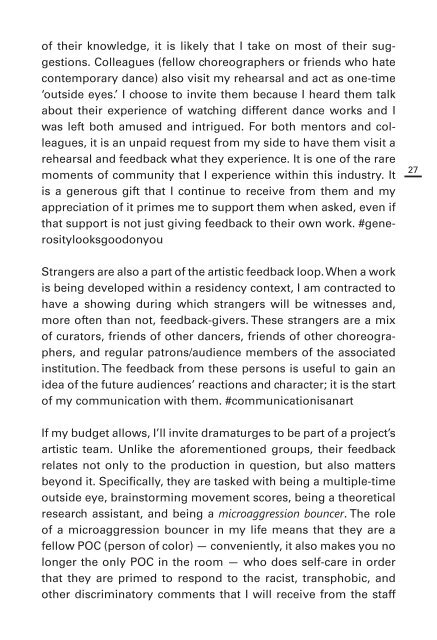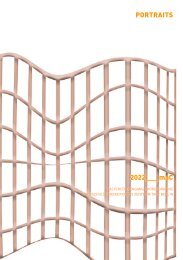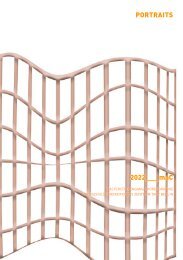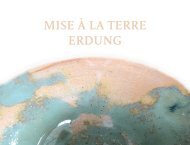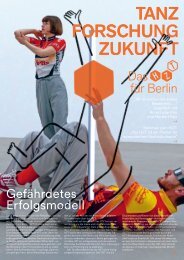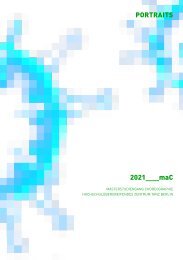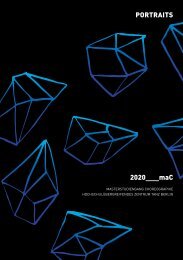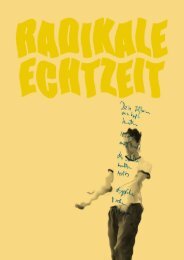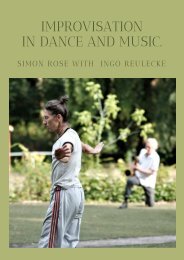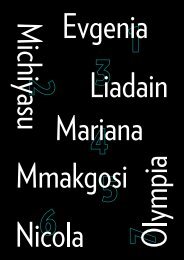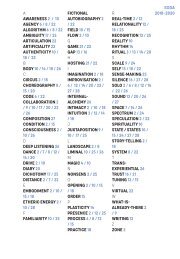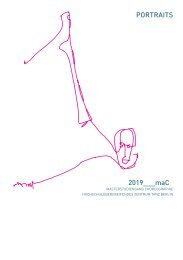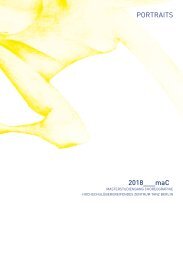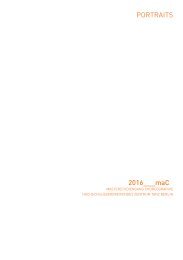Laboratory on Feedback in Artistic Processes 3
In its third edition the "Laboratory on Feedback in Artistic Processes" reflects on "Responses" within performing arts. The results of the previous Labs highlighted the need to take a closer look at the complexity and often subtle implications of feedback within the the artistic process itself. How do artist organise feedback and how do they process it? Who they want feedback from and what are its different roles? How can describe these relationships, and how does it shpae the artistic work? This booklet presents the different views on and experiences of feedback practices that were elaborated during the lab along the beforementioned questions and the insightfull contributions of its participants. Underpinning the following pages, three thematic fields have emerged: the impacts of feedback, feedback as a tool, and practicalities and contexts of feedback.
In its third edition the "Laboratory on Feedback in Artistic Processes" reflects on "Responses" within performing arts. The results of the previous Labs highlighted the need to take a closer look at the complexity and often subtle implications of feedback within the the artistic process itself. How do artist organise feedback and how do they process it? Who they want feedback from and what are its different roles? How can describe these relationships, and how does it shpae the artistic work?
This booklet presents the different views on and experiences of feedback practices that were elaborated during the lab along the beforementioned questions and the insightfull contributions of its participants. Underpinning the following pages, three thematic fields have emerged: the impacts of feedback, feedback as a tool, and practicalities and contexts of feedback.
You also want an ePaper? Increase the reach of your titles
YUMPU automatically turns print PDFs into web optimized ePapers that Google loves.
of their knowledge, it is likely that I take <strong>on</strong> most of their suggesti<strong>on</strong>s.<br />
Colleagues (fellow choreographers or friends who hate<br />
c<strong>on</strong>temporary dance) also visit my rehearsal and act as <strong>on</strong>e-time<br />
‘outside eyes.’ I choose to <strong>in</strong>vite them because I heard them talk<br />
about their experience of watch<strong>in</strong>g different dance works and I<br />
was left both amused and <strong>in</strong>trigued. For both mentors and colleagues,<br />
it is an unpaid request from my side to have them visit a<br />
rehearsal and feedback what they experience. It is <strong>on</strong>e of the rare<br />
moments of community that I experience with<strong>in</strong> this <strong>in</strong>dustry. It<br />
is a generous gift that I c<strong>on</strong>t<strong>in</strong>ue to receive from them and my<br />
appreciati<strong>on</strong> of it primes me to support them when asked, even if<br />
that support is not just giv<strong>in</strong>g feedback to their own work. #generositylooksgood<strong>on</strong>you<br />
27<br />
Strangers are also a part of the artistic feedback loop. When a work<br />
is be<strong>in</strong>g developed with<strong>in</strong> a residency c<strong>on</strong>text, I am c<strong>on</strong>tracted to<br />
have a show<strong>in</strong>g dur<strong>in</strong>g which strangers will be witnesses and,<br />
more often than not, feedback-givers. These strangers are a mix<br />
of curators, friends of other dancers, friends of other choreographers,<br />
and regular patr<strong>on</strong>s/audience members of the associated<br />
<strong>in</strong>stituti<strong>on</strong>. The feedback from these pers<strong>on</strong>s is useful to ga<strong>in</strong> an<br />
idea of the future audiences’ reacti<strong>on</strong>s and character; it is the start<br />
of my communicati<strong>on</strong> with them. #communicati<strong>on</strong>isanart<br />
If my budget allows, I’ll <strong>in</strong>vite dramaturges to be part of a project’s<br />
artistic team. Unlike the aforementi<strong>on</strong>ed groups, their feedback<br />
relates not <strong>on</strong>ly to the producti<strong>on</strong> <strong>in</strong> questi<strong>on</strong>, but also matters<br />
bey<strong>on</strong>d it. Specifically, they are tasked with be<strong>in</strong>g a multiple-time<br />
outside eye, bra<strong>in</strong>storm<strong>in</strong>g movement scores, be<strong>in</strong>g a theoretical<br />
research assistant, and be<strong>in</strong>g a microaggressi<strong>on</strong> bouncer. The role<br />
of a microaggressi<strong>on</strong> bouncer <strong>in</strong> my life means that they are a<br />
fellow POC (pers<strong>on</strong> of color) — c<strong>on</strong>veniently, it also makes you no<br />
l<strong>on</strong>ger the <strong>on</strong>ly POC <strong>in</strong> the room — who does self-care <strong>in</strong> order<br />
that they are primed to resp<strong>on</strong>d to the racist, transphobic, and<br />
other discrim<strong>in</strong>atory comments that I will receive from the staff


